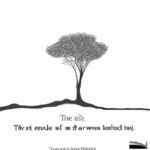In your quest for knowledge and understanding of the Torah, have you ever wondered about the presence of Hamas within its sacred texts? Curiosity drives us to explore the intersection of history and religion, seeking answers to questions that arise. Delve deeper into this intriguing topic as we uncover the references to Hamas within the Torah and seek to understand the underlying reasons behind its mentions. Join us on this enlightening journey as we unravel the hidden connections between scripture and the modern world.
Where is Hamas mentioned in the Torah and why?
The Importance of Understanding the Torah
The Torah is one of the most significant religious texts in Judaism and holds deep meaning for Jewish people around the world. It is a collection of sacred writings that encompasses various aspects of life, including laws, stories, and wisdom. Within its pages, we can find guidance, lessons, and historical accounts that continue to shape the Jewish faith. One topic that sparks curiosity among many is the mention of Hamas in the Torah.
Understanding the Meaning of Hamas
Before exploring where Hamas is mentioned in the Torah, it is essential to clarify what Hamas refers to. Hamas is an acronym that stands for Haragah (“murder”) and Sakanah (“danger”). It is an extremist political and military organization that primarily operates in the Palestinian territories. Hamas seeks to establish an Islamic state in the region and has been involved in numerous conflicts and acts of violence over the years.
Exploring Verses in the Torah Related to Hamas
While the word “Hamas” is not explicitly mentioned in the Torah, there are verses that some interpret as having a connection to the organization’s ideology or actions. It is important to note that interpretations may vary, and scholars and religious leaders have different perspectives. Here are some verses often discussed in relation to Hamas:
H3-1 | Deuteronomy 30:7
Deuteronomy 30:7 states, “And the LORD your God will put all these curses on your enemies and on those who hate you, who persecuted you.” Some interpret this verse as a reference to the enemies who have persecuted the Jewish people throughout history, including groups like Hamas. The verse suggests that these enemies will face divine retribution for their actions.
H3-2 | Deuteronomy 7:25
Deuteronomy 7:25 cautions, “Do not covet the silver and gold on them, and do not take it for yourselves, or you will be ensnared by it, for it is detestable to the LORD your God.” This verse could be interpreted as a warning against the desire for material wealth, which some argue is a motivation for extremist groups like Hamas. It serves as a reminder to prioritize spiritual values over worldly possessions.
H3-3 | Exodus 14:13
Exodus 14:13 reads, “Moses answered the people, ‘Do not be afraid. Stand firm and you will see the deliverance the LORD will bring you today. The Egyptians you see today you will never see again.'” This verse is often associated with the theme of liberation and deliverance from oppressors. Some draw a parallel between the Israelites’ liberation from Egypt and the aspirations for freedom from organizations like Hamas fighting against perceived oppression.
H3-4 | Deuteronomy 20:10-12
Deuteronomy 20:10-12 lays out guidelines for warfare, stating, “When you approach a city to wage war against it, offer it terms of peace. If it agrees to make peace with you and opens its gates to you, all the people found in it shall become your forced labor and shall serve you. However, if it does not make peace with you but wages war against you, lay siege to it.” Some may interpret these verses as applicable to the conflict between Israel and Hamas, emphasizing the importance of attempting peaceful resolutions before resorting to warfare.
H3-5 | Psalms 35:8
Psalms 35:8 implores, “May ruin overtake them by surprise—may the net they hid entangle them, may they fall into the pit, to their ruin.” While this verse does not specifically mention Hamas, it expresses a desire for divine intervention and justice against those who cause harm. Some believe it carries relevance to the actions of organizations like Hamas and their impact on the lives of innocent people.
H3-6 | Proverbs 24:17
Proverbs 24:17 advises, “Do not gloat when your enemy falls; when they stumble, do not let your heart rejoice.” This verse serves as a reminder to avoid rejoicing in the suffering of others, even if they are considered adversaries. It encourages empathy and compassion, principles that can guide individuals dealing with the complex dynamics between Israel and Hamas.
H3-7 | Isaiah 19:1
Isaiah 19:1 states, “An oracle concerning Egypt: See, the LORD rides on a swift cloud and is coming to Egypt. The idols of Egypt tremble before him, and the hearts of the Egyptians melt with fear.” This verse portrays the power and might of God, suggesting that even the most formidable forces will tremble before the divine. Some view this verse as a reminder that ultimately, it is God who holds sovereignty and control over the actions and outcomes of organizations like Hamas.
H3-8 | Ezekiel 21:31
Ezekiel 21:31 warns, “I will pour out my fury on you and breathe out my fiery anger against you; I will deliver you into the hands of brutal men, men skilled in destruction.” While not specifically referring to Hamas, this verse describes the consequences of disobedience and the potential for divine punishment. Some may draw parallels between this warning and the destructive actions carried out by extremist groups.
H3-9 | Proverbs 14:21
Proverbs 14:21 advises, “Whoever despises his neighbor is a sinner, but blessed is he who is generous to the poor.” This verse promotes kindness and compassion toward others, emphasizing the importance of treating neighbors with respect. It serves as a reminder that fostering understanding and empathy can be powerful tools in building peaceful coexistence, even in the face of conflicts such as the one between Israel and Hamas.
H3-10 | Isaiah 61:1
Isaiah 61:1 proclaims, “The Spirit of the Sovereign LORD is on me because the LORD has anointed me to proclaim good news to the poor. He has sent me to bind up the brokenhearted, to proclaim freedom for the captives and release from darkness for the prisoners.” While not a direct mention of Hamas, this verse highlights a mission of bringing hope, healing, and liberation to those in need. It can be interpreted as a call to address the root causes of conflicts, including the aspiration for freedom that may resonate with groups like Hamas.
A Reminder of Spiritual Reflection
While the Torah provides various verses that some connect to Hamas, it is important to remember that interpretations can vary greatly. Studying the Torah serves as an opportunity for spiritual reflection, guidance, and understanding of the Jewish faith. It offers wisdom that can promote tolerance, peace, and empathy in the face of conflicts with organizations such as Hamas. Exploring these verses encourages a deeper appreciation for the complexities of the human experience and the challenge of finding harmony in a world often marked by division.


